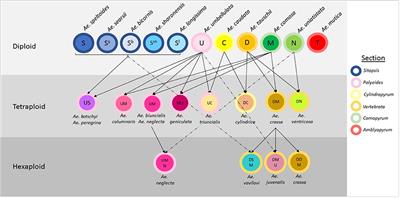EDITORIAL
Published on 14 Jul 2020
Editorial: Aegilops: Promising Genesources to Improve Agronomical and Quality Traits of Wheat
doi 10.3389/fpls.2020.01060
- 1,889 views
- 5 citations
22k
Total downloads
97k
Total views and downloads
EDITORIAL
Published on 14 Jul 2020
HYPOTHESIS AND THEORY
Published on 09 May 2019

REVIEW
Published on 18 Mar 2019

ORIGINAL RESEARCH
Published on 25 Feb 2019

ORIGINAL RESEARCH
Published on 07 Feb 2019

ORIGINAL RESEARCH
Published on 31 Jan 2019

ORIGINAL RESEARCH
Published on 25 Jan 2019

ORIGINAL RESEARCH
Published on 24 Jan 2019

ORIGINAL RESEARCH
Published on 10 Jan 2019

ORIGINAL RESEARCH
Published on 11 Dec 2018

ORIGINAL RESEARCH
Published on 04 Dec 2018

ORIGINAL RESEARCH
Published on 04 Dec 2018
